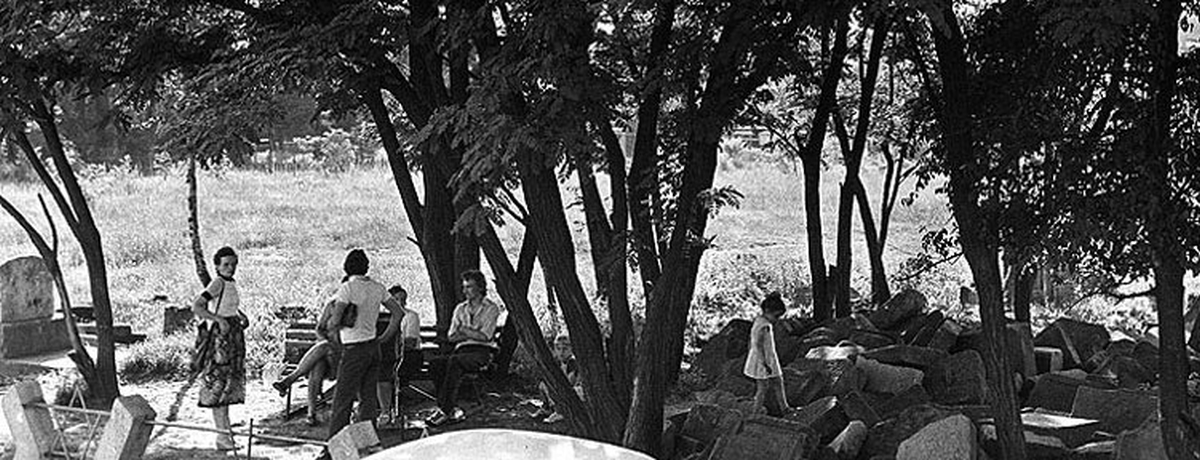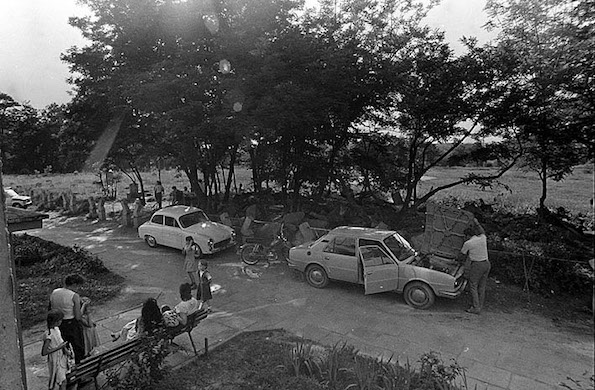My adventure with Jewish culture began in 1981, when we moved into a residential building next to Dębica’s Jewish cemetery. At the time I had no idea who Jews were, I knew nothing about Jewish culture or fate in the context of the local and Polish history. The nearby unfenced and neglected Jewish cemetery did not even function as a cemetery in my mind, as no one treated the site like they would a cemetery. The local authorities also remained indifferent. Neighbors acted as if these were just ordinary stones you find on a meadow. I myself used to play football on this “meadow”. But through observation how the site gets devastated on a daily basis I finally realized this is not fair, especially since every once in a while the cemetery would be visited by foreigners. Some of them wore black coats and had long beards. I felt ashamed that living next to a cemetery, I was not doing anything to improve its current state. This ghastly view from the window encouraged me to study the history and culture of Polish Jews. I started reading books by Franz Kafka and Isaac Bashevis Singer. I spotted the album “Polish Jewry. History and Culture” (Warsaw, 1982) in the window display of a local bookshop, which not only presented color photographs of objects of Jewish religious worship and reproductions of various artworks, but also texts by Marian Fuks, Zygmunt Hoffman, Maurycy Horn and Jerzy Tomaszewski.
Ireneusz Socha
Dębica









